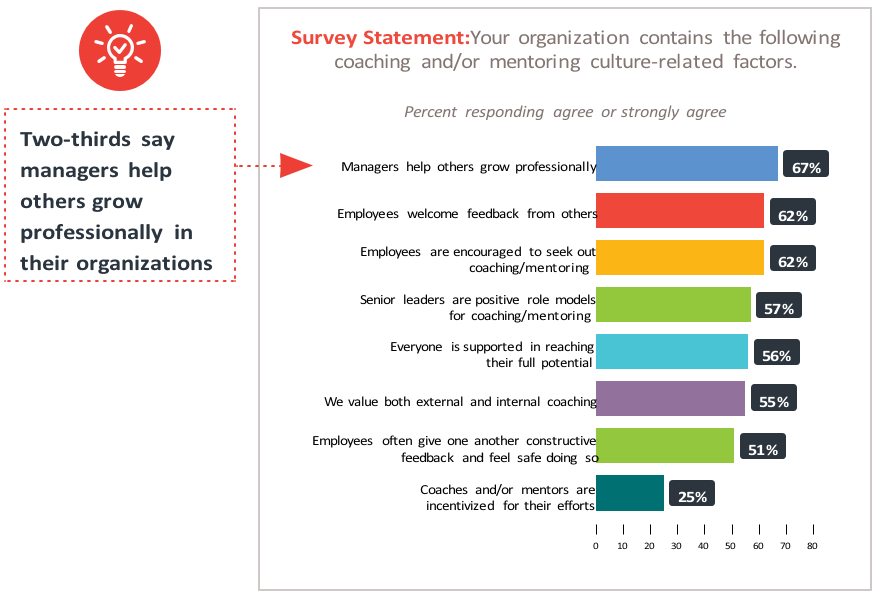Many organizations contain elements of a strong coaching and mentoring culture, but there are key factors that are lacking.
On a positive note, respondents agree or strongly agree that:
- managers help others grow professionally (67%)
- employees welcome feedback from others (62%)
- employees are encouraged to seek out coaching/mentoring (62%)
However, fewer respondents agree or strongly agree that:
- employees often give one another constructive feedback and feel safe doing so (51%)
- coaches and/or mentors are incentivized for their efforts (25%)

Evidence of strong coaching cultures is mixed
A coaching culture is one where coaching/mentoring happens frequently and is encouraged throughout the organization. It becomes a core value, and it is characterized by a high degree of trust, honest communication and transparency.
We explored eight factors associated with a strong coaching culture. On a positive note, the majority of respondents agree that managers help others grow professionally, employees are encouraged to seek out opportunities for coaching and mentoring, employees welcome feedback from one another, and senior leaders are positive role models for coaching and mentoring.
However, fewer agree that employees feel safe giving constructive feedback to one another, that they place a high value on both external and internal coaching, and that employees are supported in reaching their full potential.
Only 25% agree or strongly agree that their organization provides incentives for coaches and mentors. While it might be reasonable to argue that managers should not receive financial rewards for internal coaching and mentoring, these are still an invaluable set of skills, and leaders who excel should be recognized.
By Organizational Size
Compared to organizations of other sizes, larger organizations are far less focused on ensuring that everyone is being supported in reaching their full potential. Just 46% of respondents at large organizations agree or strongly agree with this statement versus 78% of respondents at small organizations.
